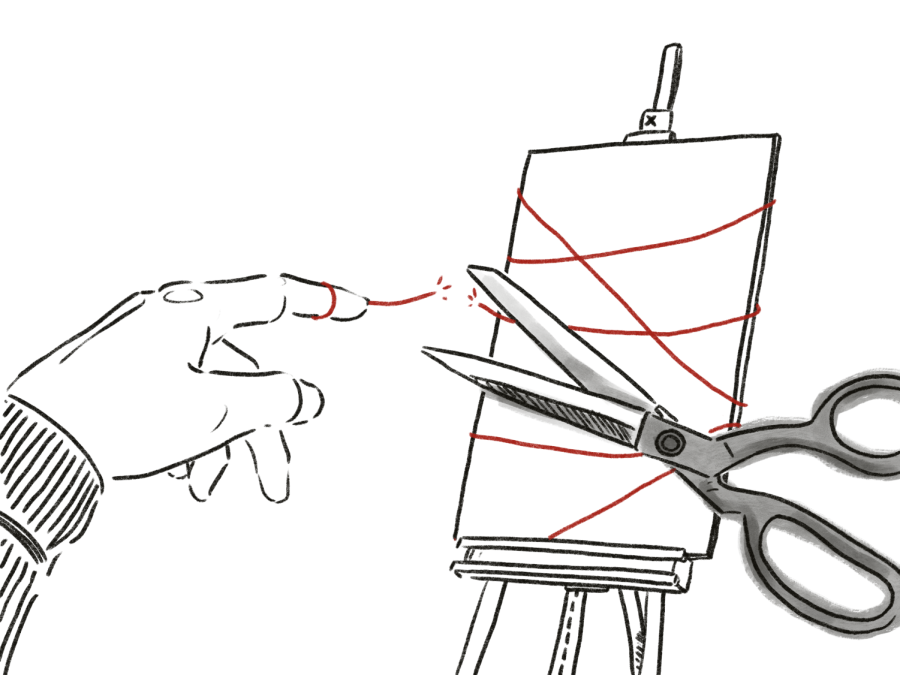The Ideology and Morality of “Separating The Art From The Artist”
February 12, 2023
In modern media culture, controversial and problematic people are extremely prevalent—dusted all over the Internet, using their web presence as a microphone to share their ill-spoken “truth.” Evidently, someone’s talent or desirable aspects doesn’t mean their beliefs and values are virtuous. So is it justifiable to support art that was created by an artist who, as a person, goes against your moral compass? Here, an old question comes into the equation: is it possible to view someone’s art as a separate entity and totally dissociate it from the creator and their actions?
Recently, a prominent example of this phenomenon is rapper Kanye West. West’s music is widely successful and heavily supported by a vast audience. However, his controversial, racist, and anti-semitic beliefs and tweets have led to the deactivation of West’s Twitter account. Despite the undeniable and inexcusable actions of Kanye West, many stand firm in their beliefs that “Kanye’s music is still so good!” and that they “don’t support him as a person, but his music just hits so hard!” Is it possible to solely support his music when each listen lines his problematic pockets?
Moreover, this phenomenon is not exclusively restricted to individual people, as seen primarily with the clothing brand, Brandy Melville. The European brand is infamous for their “one size fits most” clothing, only selling a size similar to an XS or S. Gaining widespread popularity in the United States in 2018, they have sent teenage girls in a frenzy fawning over the brand’s simple-chic aesthetic. Besides Brandy Melville’s questionable sizing, their dirty practices do not stop there. The clothing company’s CEO, Stephan Marsan, allegedly made several racist remarks about the company’s clientele and employees, shared by Luca Rotondo, a former executive of Brandy Melville. Marsan went as far to reportedly say that “If [a customer] was black, if she was fat… [he] didn’t want them in the store.” Despite Brandy Melville’s shady values, the brand continues to thrive worldwide.
Now, applying a similar ideal to before, is it possible to buy from Brandy Melville solely because you like their style, while not condoning their unacceptable actions? Freddie Funck ’26 has an interesting take, “By buying directly from harmful brands you’re giving into their warped values and ideals.” Funck continued, “people steal from problematic brands in efforts to still get their clothes, because they don’t want to monetarily support bad companies, and by extension, their values.”
Ultimately, your money is voiceless support, whether it’s shown through streams on a problematic artist’s album or a shirt from an unethical company. Your support fuels these dissolute entities to continue to produce their art. By supporting the creations of controversial people & companies, you’re giving them money and an inherently larger platform for them to share harmful beliefs and further the damage they’ve created. In the end, someone’s creation is in reality just an extension of themselves, no matter how beautiful it may be.










